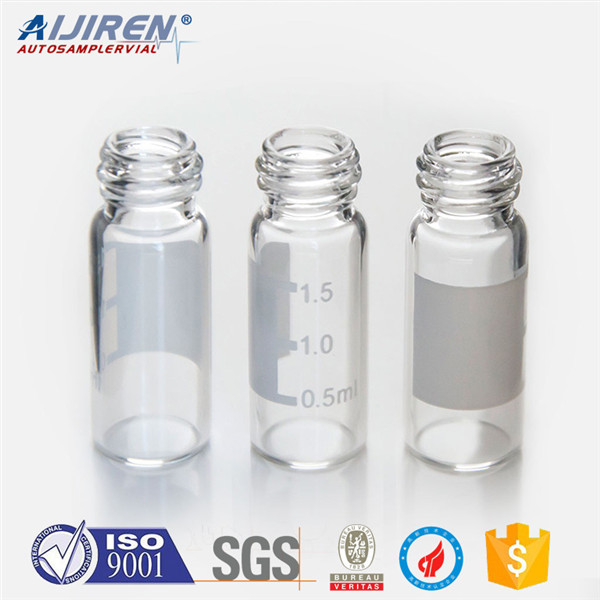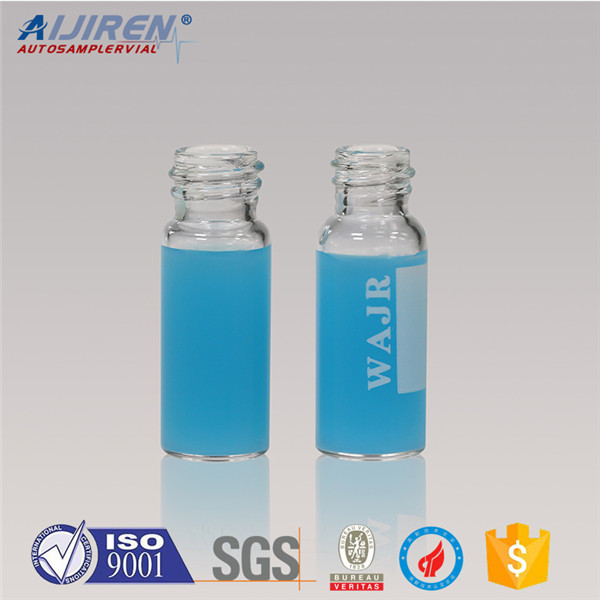.jpg)
Sampler freely tunable contribution to system gradient delay volume between 0 to 230 µL Sample capacity Any four of the following (SBS footprint): • 54 × 12 mm OD vials (≤1.5 mL) • 96 × 6, 7, and 8 mm OD vials (≤1.2 mL) • 16 × 15 mm OD vials (≤4 mL) • 9 × 22.5 mm OD vials (≤10 mL) • Well plates (96 and 384, deep and shallow)

Our portfolio includes clear glass vials for your general use and amber vial for applications involving light sensitive sample analytes. Our complete range of glass chromatography vials are made from Type 1 borosilicate glass which is compatibility with the widest range of sample matrices including acidic, neutral or alkaline pHs. The high-quality materials in use can minimize extractables leeching from the glass and interfering with the analytes of interest.
.jpg)
Autosampler Vials and Well Plates Which HPLC and UHPLC autosampler is right for you? Innovative and carefully designed Thermo Scientific autosamplers and sampler extension module ensure reliable, precise and accurate injection for nanoliter to milliliter sample volumes. They support a wide range of formats and sample throughputs.
.jpg)
In this article, we are going to look at how to optimize your HPLC system, looking specifically at troubleshooting HPLC autosamplers. The autosampler component of a HPLC system is used to increase sample throughput, improve the precision of injections, and allow for unattended operation. Its main components are a needle or syringe, a metering
.jpg)
Autosampler Vials and Vial Sets Thermo Scientific™ 9mm Assembled Clear Autosampler Vial Kits Save time and reduce the risk of contamination using this convenience kit.
.jpg)
1.10 Use clean vials, caps, and plates a. Use Waters-brand vials; they have been certified as contaminant-free.4 Other vials may not be clean or may have caps containing adhesives that can contaminate the sample manager. b. Make sure the liner on your vial and bottle caps does not contain contaminants (check the manufacturer’s description):
.jpg)
Acidic compounds and neutral compounds mainly adsorb to glass and PP containers by hydrophobic adsorption. Therefore, an organic solvent (methanol, acetonitrile, etc.) or non-ionic surfactant is added to the sample solution to reduce adsorption. Although dependent on the logP of the target compounds, adding 10 to 50 % organic solvent or around

Type of Vial Finish and Closures Autosampler vials are available in a variety of neck finishes and opening diameters. Large mouth or wide ID vials have approximately a 40% wider mouth opening than standard opening vials. The large opening reduces the risk of bent autosampler needles during sampling.
.jpg)
Headspace vials with 20 mm crimp tops and 18 mm screw tops in sizes ranging from 6 mL to 20 mL are available in clear or amber glass. Choose from a round or flat base with a beveled or square edge finish. Round base vials are compatible with most autosamplers and are more easily handled by robotic arms that lift the vial from the tray.

Bottles can get contaminated with detergents form the dishwasher. † Exchange water-based solvents daily. † Algae growth may block the degasser or filters. † Precipitation of insoluble salts may block filters or capillaries. † Select solvent volume to be used up within 1 – 2 days. † Use only HPLC-grade solvents and water filtered
.jpg)
L 405003743, 48-well, 2 mL vial 405003742, 24-well, 4 mL vial 405003740, 24-well, 1.5 mL tube 405003741, 48-well, 0.65 mL tube 2 ml, screw cap vials (12 32 mm), with plate type ANSI-48Vial2mLHolder 186000307C Clear, with pre-slit PTFE/silicone septa N/A N/A N/A 186000847C Amber, with pre-slit PTFE/silicone septa N/A N/A N/A
.jpg)
.jpg)